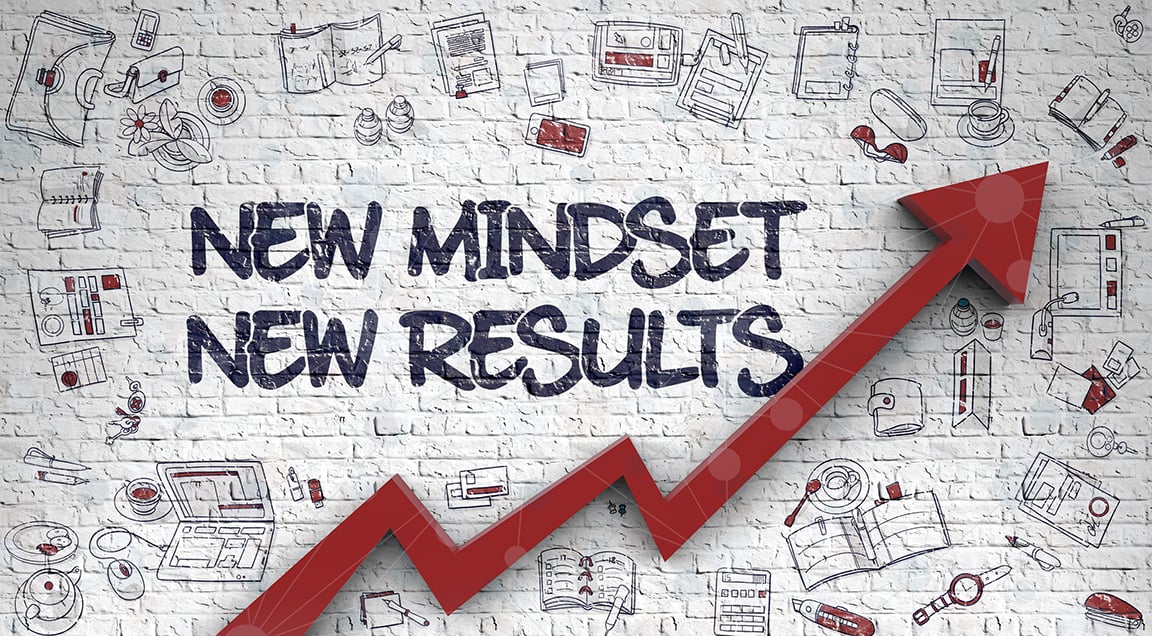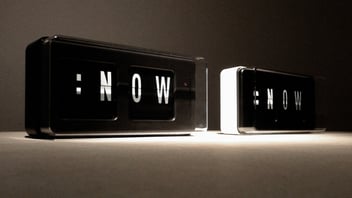
As an executive coach, I hear a lot of different ideas about what people expect coaching to be. In fact, in the course of my career, I myself have held a few different ideas about what coaching is. But over the last few years, I have begun to recognize the immense power of what is known as Mindset Coaching to effect radical changes for people who want to improve the quality of their businesses, their relationships — their entire existence.
In order to help clarify what I mean by Mindset Coaching, I suppose I should define what I mean by the terms mindset and coaching. Let’s take them in reverse.
"Coaching" is broadly defined as a kind of developmental relationship in which a coach helps a person or a team to achieve a personal or professional goal through training and guidance. In executive or business coaching, it is the discipline of observing, listening to or relating to another person, and then engaging with that person with the express intent of inspiring and being a conduit to their improvement.
Now, there are a lot of nuances to that definition, but for now it is more important to note what is omitted: Contrary to what some think, coaching — at least “good” coaching — is not about the coach simply telling people what to do and then holding them accountable to do it. As it turns out, people in general do not respond well to being told what to do. Shocking, right? There is mounting evidence through thoughtful and rigorous research showing that we will act primarily on our own ideas, as opposed to someone else’s. If I tell you what to do, you might do it for a while, but the statistical probability of you sustaining the action is greatly diminished because the original thought and insight did not come from you. Therefore, if we want to be that conduit to sustained improvement in our clients, a good coach must recognize this basic principle, and a good coaching platform will embody the idea of being a powerful catalyst for stimulating original thoughts in the person being coached.
 But because giving advice and direction is as natural a tendency as not wanting to take it, this methodology requires training, repeated practice, and immense patience on the part of the coach. The coach must learn not to insert his or her own ideas into the exchange, but instead to help the person being coached to develop their own. The best executive coaches in the world are those who have honed the skill of asking amazingly powerful and creative questions. Creativity comes into play because not only do the questions have to match the client’s needs, but the coach’s response needs to be cohesive and purposeful.
But because giving advice and direction is as natural a tendency as not wanting to take it, this methodology requires training, repeated practice, and immense patience on the part of the coach. The coach must learn not to insert his or her own ideas into the exchange, but instead to help the person being coached to develop their own. The best executive coaches in the world are those who have honed the skill of asking amazingly powerful and creative questions. Creativity comes into play because not only do the questions have to match the client’s needs, but the coach’s response needs to be cohesive and purposeful.
Anything less than this hyper-thoughtful and Socratic approach is nothing more than transactional—you give me X (time, dollars) and I will give you Y (steps one, two, and three). Of course everyone wants results, and the process of this kind of coaching certainly can help people achieve their goals initially. But as with so many other disciplines, the distinction between ineffective and truly effective coaching is in the details. Good coaches listen. Great coaches listen with intent and purpose. Specifically, great coaches listen for energy, and for any hints about what might help another person create an insight from which they will develop their own steps toward improvement.
So, by coaching, we mean a specific kind of coaching in which the person being coached generates their own insights, facilitated by a coach’s creative questioning.
Now, let’s add the mindset part.
The operative part of mindset is “mind.” And the mind, unlike the physical brain, touches on of the very essence of who we are as human beings. When we study the mind, we draw from the disciplines of psychology, biology, chemistry, philosophy and anthropology, and attempt to see a human as an interactive and emergent being. This topic of mindset, to some, can seem a bit metaphysical – and it is! – but it yields a surprisingly tangible approach for viewing a person in a holistic way. Our mindset gets at the very core of who we are and asks the deepest questions about our meaning and our purpose, our history and our future, and most certainly how we think, feel, and act in the present.
 Researcher and Psychiatrist Dr. Dan Siegel defines the mind as being “both embodied and embedded in our connections with others and our environment.” It encompasses the neurological processes at work in our brains, as well as that more expansive but ineffable sense of self. It’s what enables us to use the physical biology of our brains to relate to the world around us. It’s what makes us us.
Researcher and Psychiatrist Dr. Dan Siegel defines the mind as being “both embodied and embedded in our connections with others and our environment.” It encompasses the neurological processes at work in our brains, as well as that more expansive but ineffable sense of self. It’s what enables us to use the physical biology of our brains to relate to the world around us. It’s what makes us us.
Mindset Coaching, then, is a considering of the entirety of a person’s being in order for them to gain greater insight. The reason for these greater insights is to reach beyond the bounds of our own established and limited thought patterns and into the kind of mindset that will lead us to true growth and lasting transformation.
I have been an executive coach now for nearly two decades. And I think all coaching — to the degree to which the aim is to help someonegrow — is good. But the most effective work I have ever done and the most incredible results and transformation I have ever seen is when we deploy this level of mindset coaching. If you have never been fortunate enough to work with a coach who understands this practice and can deploy it with skill and artistry, you have been missing out. A deeper level of understanding about the true, transformative power of Mindset Coaching could lead you to places you never thought you could go. If lasting results are what you seek, Mindset Coaching is for you.



